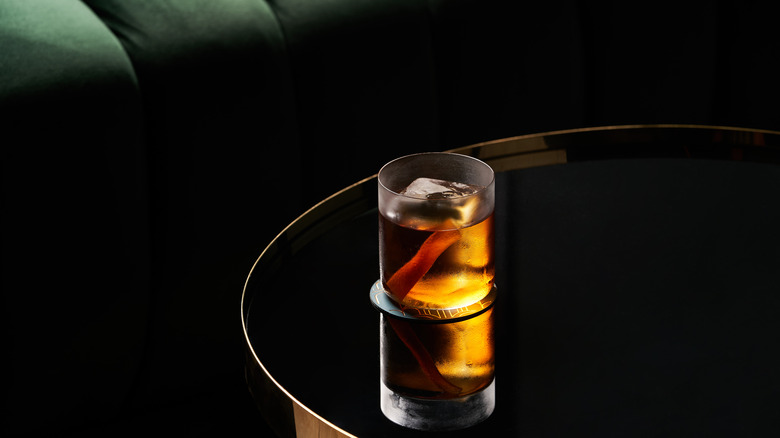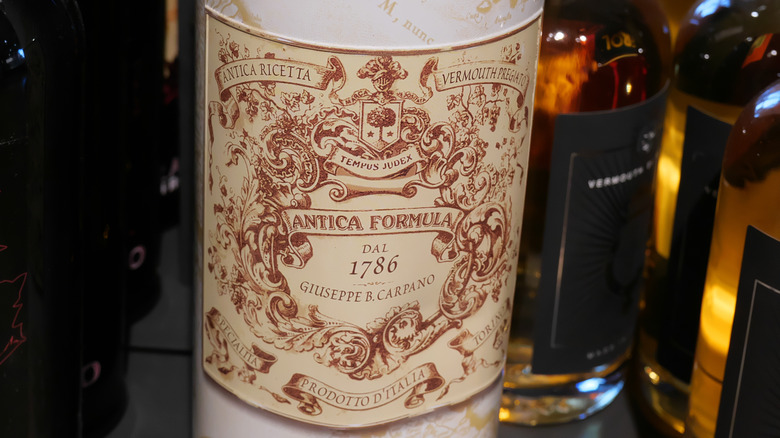Carpano Antica Vermouth Has Remained Unchanged Since The 1700s
Even though chef Anthony Bourdain didn't care for vermouth (or gin, or Campari), he still lauded the Negroni as "the perfect cocktail." When the three spirits are combined, says Bourdain, via Thrillist, "It sets you up for dinner, in a way it makes you hungry, sands the edges off the afternoon." One of the chief reasons for this is the understated power of vermouth. Plus, vermouth is the key ingredient in an Americano cocktail — the first drink to ever be mentioned in a James Bond novel, per Esquire. So, what's all the hype about?
The history of vermouth is as rich as its flavor. According to Marolo Heritage, the blog of Italy's Marolo Distillery, vermouth comes from Turin, Italy, where it originally had medicinal utility. But, folks soon discovered its other benefits and were enjoying vermouth leisurely by the 18th century. (Although depending on who you ask, France might have invented it first.) The earliest forms were made in barrels during Piedmont winters, which made for a slow, drawn-out infusion of herbs into the wine.
Trends are nothing new to the cocktail world. (Espresso Martini, anyone? Or, how about a Negroni Sbagliato?) Vermouth fell out of popular favor during the early 1900s, but according to The Guardian, it is now having a moment in 2022. But, one of the premiere vermouths still available on the contemporary market has remained unchanged since the 1700s. Introducing: Carpano Antica.
A tried and true formula
According to Yves Leboulengé, commercial director for La Quintinye Vermouth Royal, via Thrillist, vermouth is actually a type of fortified, botanical-infused, low-alcohol wine — not a spirit. Like other wines, vermouth has a much shorter shelf life than liquor; it'll only last four-to-six weeks at room temperature, so be sure to pop that bottle in the fridge after opening. But, by staying faithful to its origin, Carpano Antica vermouth has been able to withstand the test of time. The Guardian calls Carpano Antica "a kind of medicine for hedonists." It still uses the original recipe created by Antonio Benedetto Carpano in 1786, with a spice-forward palette featuring saffron, dried fruit, and heavy bitterness. The glass bottle is even blown by hand.
Clocking in at an ABV of only 16%, Carpano vermouth can be an accessible and transformative ingredient to your next Manhattan or martini. You could even stir it into a Django Reinhardt cocktail or use it to take an already-fancy Boulevardier to an even fancier level. Food & Wine describes Carpano Antica as slightly sweet with top notes of sharp herbs and citrus peel, with a full-bodied mouthfeel. The brand itself describes the taste as featuring a "unique bouquet and unmistakable vanilla notes." Carpano is made exclusively from Italian-grown white wine grapes that are then processed within 24 hours after harvesting. Its trademark vanilla is sourced from Madagascar, Papua New Guinea, and Tahiti. The flavor is distinct and (clearly) not going anywhere.

